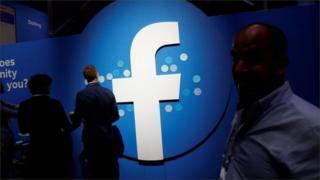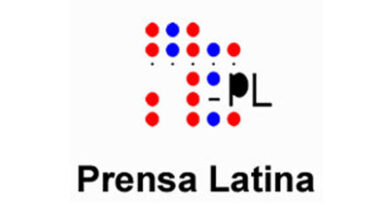Could a boycott kill Facebook?
 Image copyright Reuters
Image copyright Reuters Boycotts can be extremely effective – as Facebook is finding out.
In the late 18th century, the abolitionist movement encouraged British people to stay away from goods produced by slaves. It worked. Around 300,000 stopped buying sugar – increasing the pressure to abolish slavery.
The Stop Hate for Profit campaign is the latest movement to use boycott as a political tool. It claims that Facebook doesn’t do enough to remove racist and hateful content from its platform.
It’s convinced a series of major companies to pull advertising from Facebook and some other social media companies.
Among the latest to do so are Ford, Adidas and HP. They join earlier participants including Coca-Cola, Unilever and Starbucks.
News site Axios has also reported that Microsoft suspended advertising on Facebook and Instagram in May because of concerns about unspecified «inappropriate content» – a development the BBC can confirm.
Meanwhile, other online platforms, including Reddit and Twitch, have piled on more pressure by taking anti-hate steps of their own.
Loss of trust
Can that boycott hurt Facebook? The short answer is yes – the vast majority of Facebook’s revenue comes from ads.
David Cumming from Aviva Investors told the BBC’s Today programme that the loss of trust, and a perceived absence of a moral code, could «destroy the business».
On Friday, Facebook’s share price dropped by 8% – making chief executive Mark Zuckerberg, theoretically at least, £6bn poorer.
But whether this could be bigger – an existential threat to Facebook’s long-term future – is far less clear.
First of all, this isn’t the first boycott of a social media company.
In 2017, major brand after major brand announced they would stop advertising on YouTube – after ads were placed next to racist and homophobic videos.
That particular boycott is now almost totally forgotten. YouTube tweaked its ad policies, and three years on YouTube’s parent company Google is doing just fine.
And there are more reasons to believe this boycott isn’t as damaging to Facebook as you might think.
Lots of low spenders
Firstly, many companies have only committed to a one-month boycott in July.
Secondly, and perhaps more significantly, much of Facebook’s advertising revenue comes from thousands and thousands of small- to medium-sized businesses.
CNN reports that the highest-spending 100 brands accounted for $4.2bn in Facebook advertising last year – or about 6% of the platform’s ad revenue.
So far, the vast majority of medium-sized companies have not signed up.
Mat Morrison, head of strategy at advertising agency Digital Whiskey, told me there’s a huge number of smaller businesses that «can’t afford not to advertise».
He says that for smaller businesses – which are priced out of advertising on TV – cheaper and more focussed ads on platforms like Facebook are essential.
«The only way our business works is having access to these highly targeted audiences, that aren’t mass media audiences, so we’ll continue to advertise» Morrison says.
In some ways Facebook looks like a good choice of company to lobby. The structure of Facebook gives Mark Zuckerberg a huge amount of power to effect change. If he wants something, he’ll get it.
You only need to change the mind of one man.
But the reverse is also true. Shareholders aren’t able to put pressure on Mr Zuckerberg in the same way as other companies. If he doesn’t want to act, he won’t.
So far though, he has shown signs he’s prepared to move. On Friday, Facebook announced it would begin to tag hateful content – and look out for further announcements this week.
These changes won’t be enough to make Stop Hate for Profit go away though.
And elsewhere, others are taking action of their own.
This Monday, Reddit has banned The_Donald forum as part of a wider crackdown on «subreddits» whose members have engaged in harassment and threatening behaviour. The community was not officially linked to the President, but had helped widely spread memes that supported him, before Reddit took earlier steps to limit the posts’ reach.
In addition, Twitch has temporarily banned an account run by the Trump campaign.
The Amazon-owned video-streaming site said two videos of Mr Trump’s rallies that were shown on its platform had broken its rules on hateful conduct.
One dated from 2015, before he was elected, at which he had said Mexico was sending rapists to the US. The other was from earlier this month, in which the President had described a fictional «tough hombre» breaking into the home of an American woman.
«We do not make exceptions for political or newsworthy content,» Twitch said in a statement.
This year is going to be a rocky year for all social media companies.
Facebook is by no means the exception. But companies will always be guided by their balance sheets.
If the boycott drags on into the autumn – and if more and more companies sign up – this could be a defining year for the social network.


